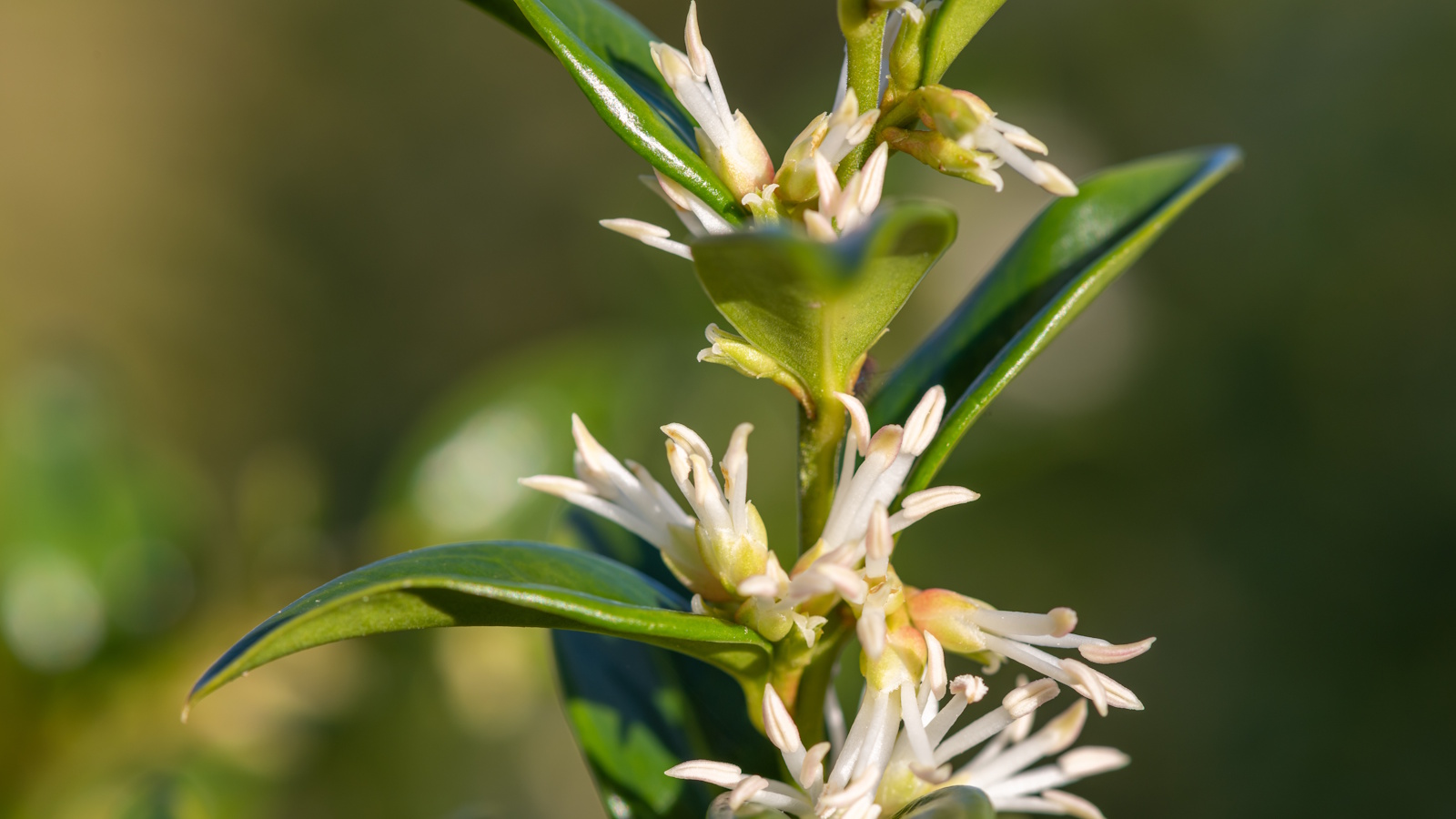
If you are landscaping slopes or banks in your yard, consider growing ground cover plants to prevent soil erosion. Heavy rainfall can cause the land to shift and slide without binding the soil, which is a worry particularly if you have a sloping bank near your home.
In addition, the spreading habit of these plants will help to protect the soil from sun damage, which can also erode the soil by drying out the upper layers. Over time, this will transform the soil into a loose fine dust, liable to shift during heavy rain or strong winds.
Fortunately, there are many ground cover plants to prevent soil erosion from happening. The following expert-approved list includes five of the best ground cover plants that are both practical and beautiful, with both evergreen and floral options that have strong, fibrous root systems.
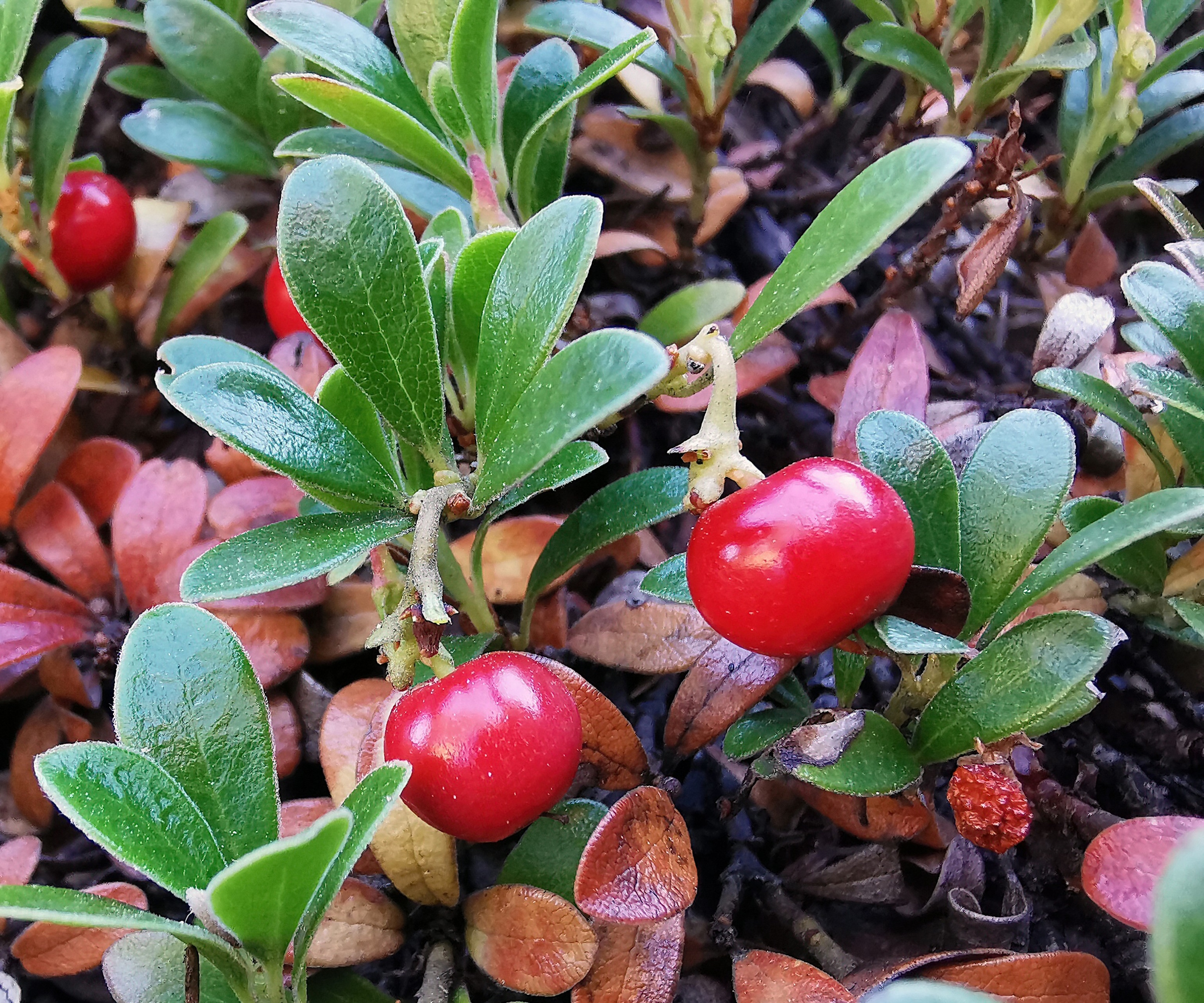
Best ground cover plants to prevent soil erosion
Few landscaping worries are more pressing than unstable, sloping ground. Unmanaged and unplanted banks pose a risk, particularly worrying during fall and winter with heavy rain and snowfall.
Erosion control, therefore, is important, and selecting plants that will bind the soil is a good insurance policy for any homeowner. So, if you are looking for sloping garden ideas to help protect your soil, the following five options should be at the top of your plant wish list.
1. Japanese spurge
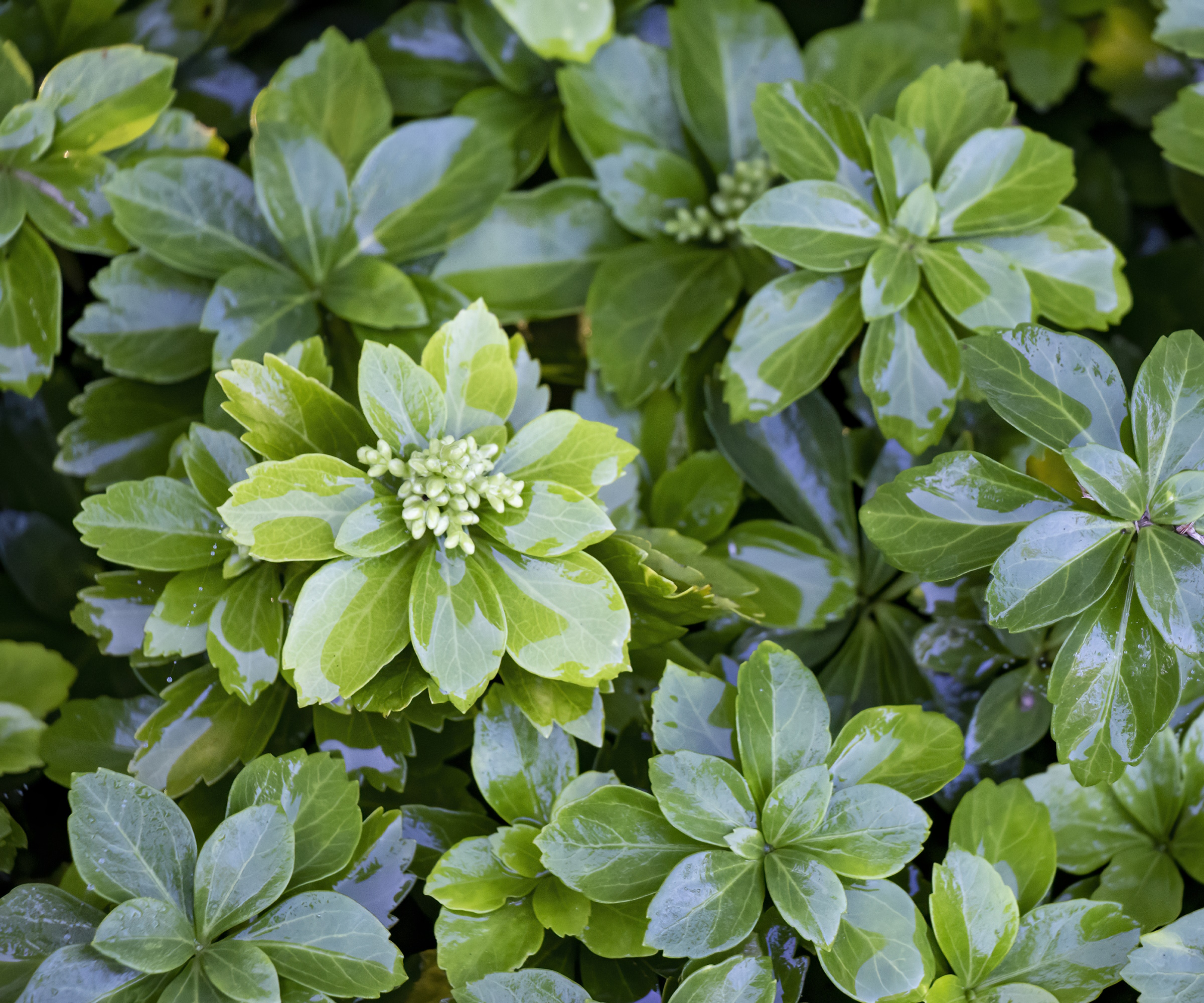
Japanese spurge, or Pachysandra terminalis, is one of the easiest evergreen ground cover plants to grow. As a gardener, I have grown this species in several private gardens where I have worked and can testify to its hardy and resilient nature.
Japanese spurge can be grown from US hardiness zone 5, doing best in part-shade with well-draining soil. With a dense, mat-forming habit, it is very useful for planting on slopes to help bind the soil with its network of fleshy, spreading roots.
While it can be slow to establish, after a few years this plant will spread, and you can easily lift and divide clumps to generate new growth elsewhere in your yard.
One cost-effective option is to plant Japanese spurge bare-root plants, available online from Amazon. These can be done in the fall months before the temperatures drop below zero.
2. Creeping juniper
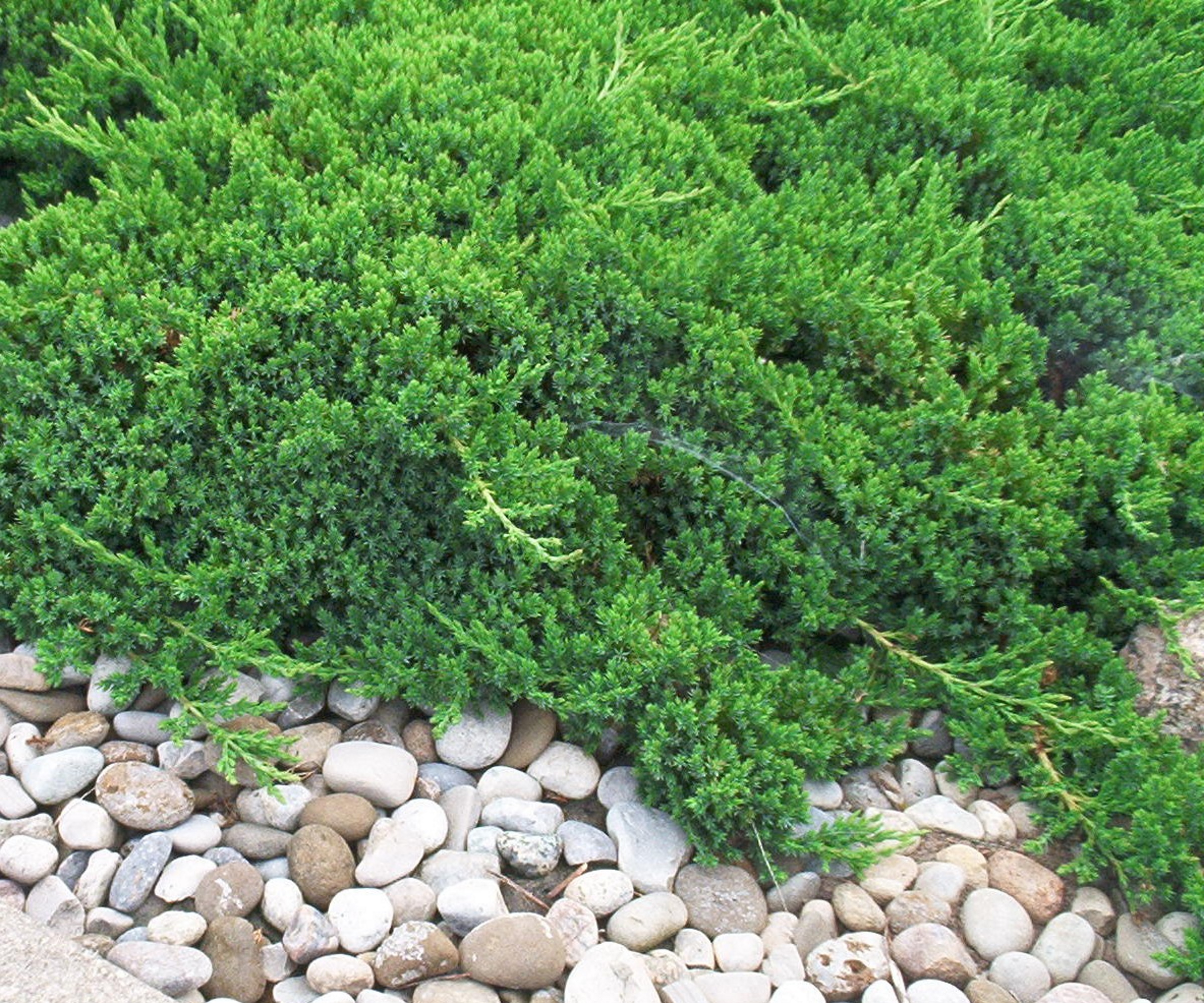
Creeping juniper, Juniperus horizontalis, is a low-growing native plant found growing across the cooler regions of North America down to US hardiness zone 4. Growing best in dry, sunny spots, creeping juniper has a dense root system that can stabilize soil in dryer regions.
'Junipers are fragrant evergreen pine trees that make for ideal landscaping plants,' says Sam Niemann, garden expert and founder of Grown by Design, a boutique landscape design firm based in San Diego.
'They do not tend to grow above 1 or 2 feet in height but can spread to about 10 feet wide, helping to cover large beds or sloping banks in the yard.'
Creeping juniper plants are available from Walmart.
3. Bearberry
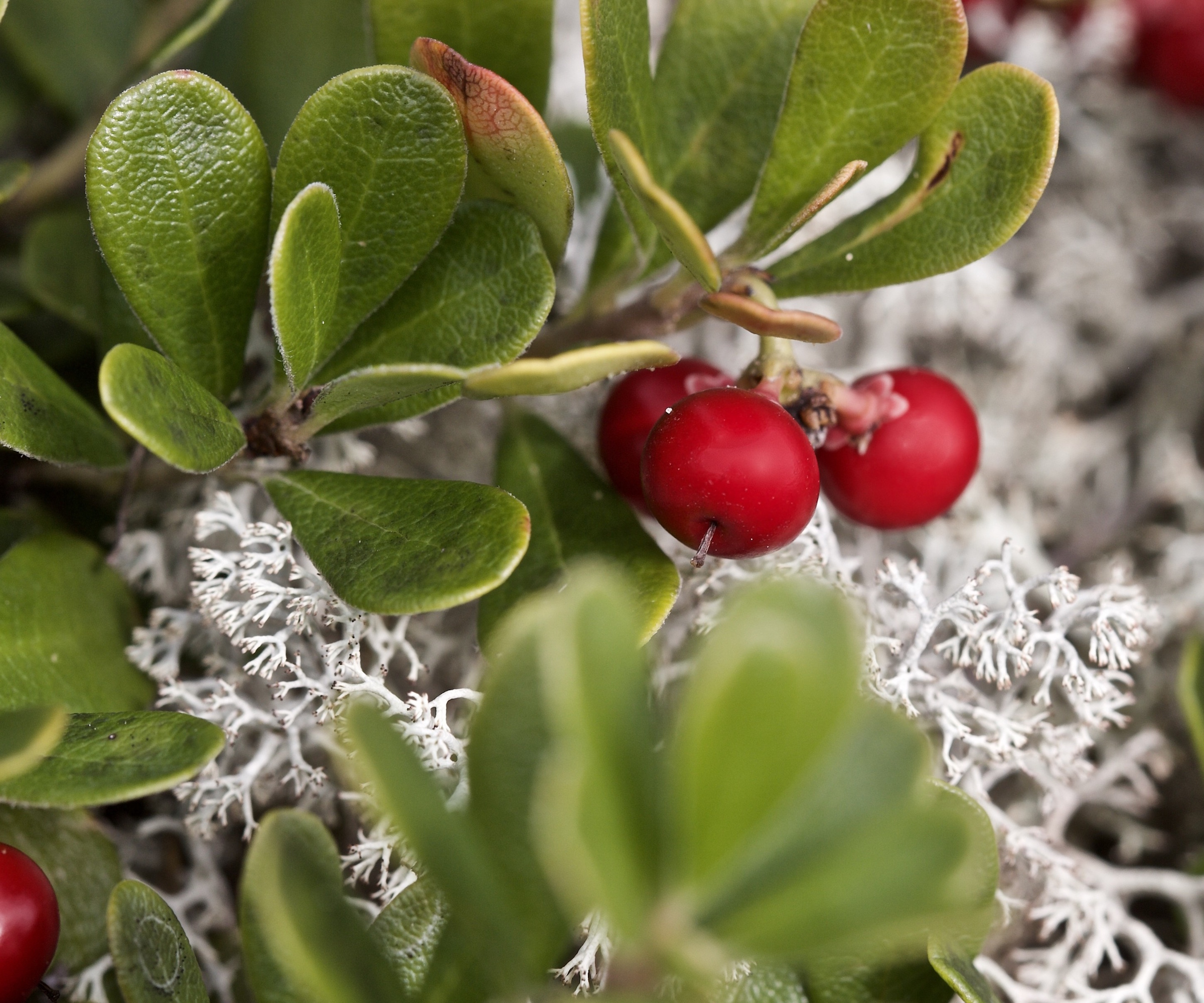
Bearberry plants have a strong, dense root system that can limit and prevent soil erosion. This plant can grow in poor soils or even sandy banks, helping to add structure to loose soils.
This ground cover is cold-hardy and can be grown down to zone 2, making it an ideal pick if you are learning how to plan a garden with a steep bank in a northerly region. Bearberry plants are available from Amazon.
'Bearberry is a native plant found growing across North America,' says Tabar Gifford, plant expert and American Meadows master gardener. 'Over time, this ground cover plant will produce a dense, compact mat, ideal for challenging areas in the yard.
'Plant bearberry in full sun,' Tabar adds, 'providing them with plenty of room to grow. Over time, one plant can spread as wide as six feet, helping to cover large areas.'
These yellow gloves are both attractive and durable, made to be protect your hands but also soft and flexible for jobs that are tricky.
This 'super blue' variety of monkey grass is an ideal option if you are looking for evergreen ground covers for sloping gardens.
Made from wood and strong stainless steel, this garden trowel will help you to complete your weeding and planting jobs with ease.
4. Monkey grass
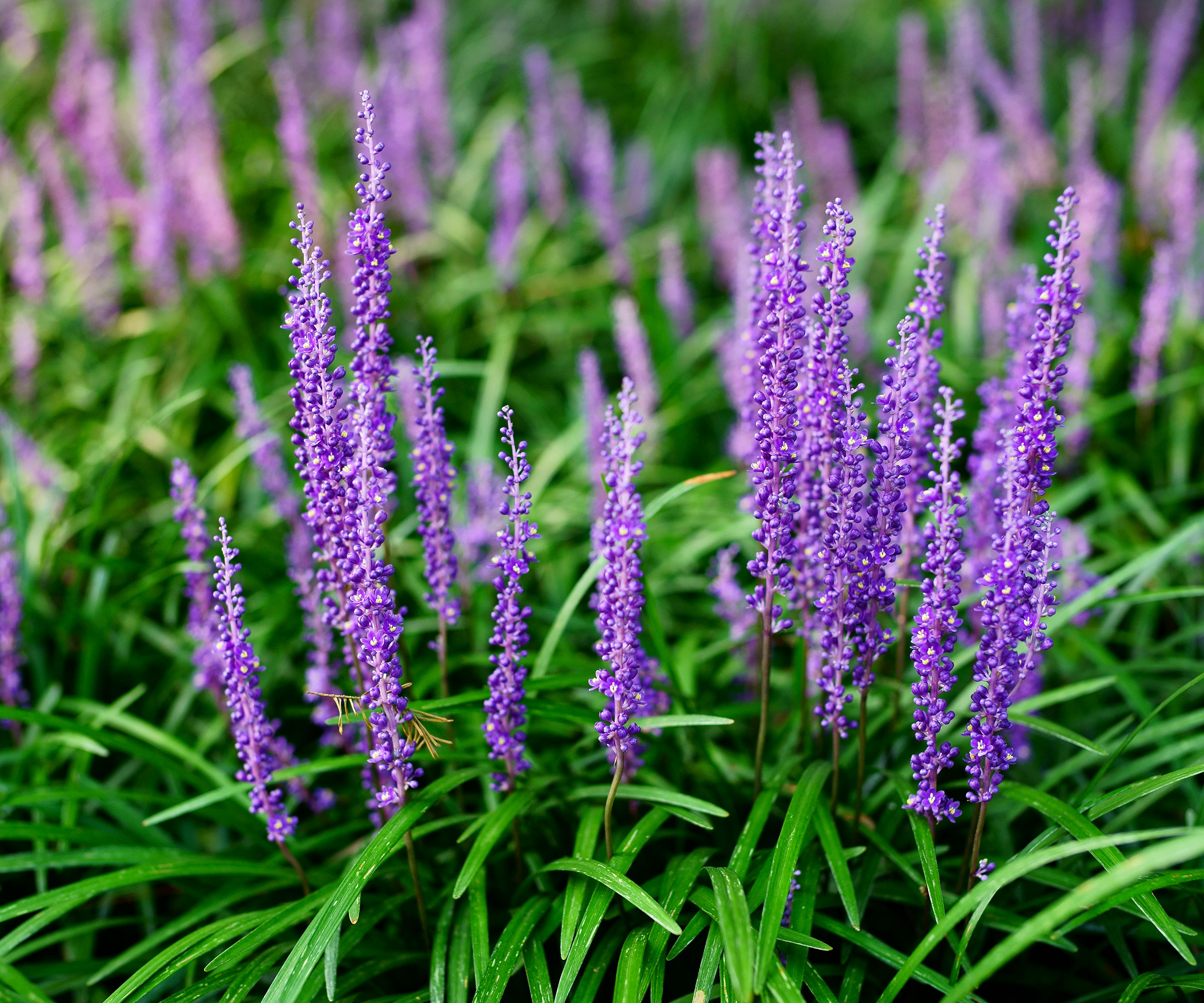
Monkey grass, Liriope muscari, is perfect if you are looking for low-maintenance garden border ideas. Monkey grass can be grown from US hardiness zone 4 to zone 10, producing lush evergreen, grass-like foliage that can carpet large borders and banks.
Monkey grass has a fibrous but shallow root system that would be ideal for a gently sloping area. While it can take a year or two to establish, once monkey grass settles, it requires little attention. What's more, the late-season purple or white flowers are ideal for a splash of color in the yard.
If you intend to cover a large area, it would be more cost-effective to order bare-root monkey grass plants, available from Walmart, which can be done in the fall months.
5. Sweet box
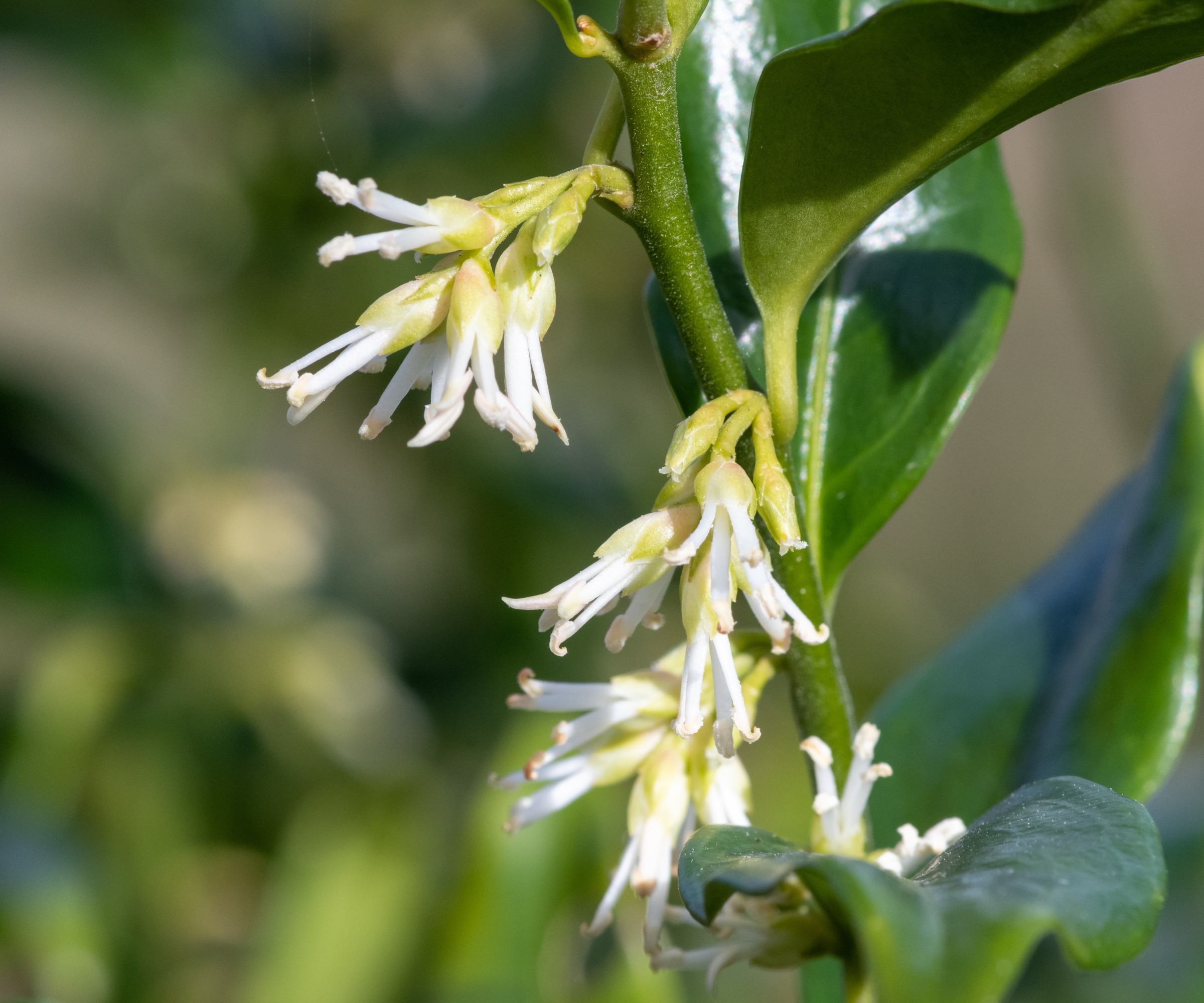
Sweet box or winter box, Sarcococca confusa, is a striking scented evergreen that I have cared for in two public gardens where I have worked in London. While it is a slow-growing plant, it is certainly worth the wait, and I would argue is one of the best winter flowers for scent.
Sweet box is a versatile plant and can be grown in pots or in the ground, growing best from US hardiness zone 6 plus. It is a suckering and spreading shrub, sending out roots that can help to stabilize soils with its extensive root system. While it can reach a height of five feet, it is easily controlled and limited in size, making for an ideal ground cover plant to prevent soil erosion.
Sweet box live starter plants are available from Walmart.
FAQs
What is the best ground cover plant for a sun-drenched, sloping yard?
Lamb's ear, Stachys byzantina, is an ideal option for a sunny, sloping yard. With silver foliage, this plant will tolerate full sun and dry summers, able to grow in both cool and warm regions from US hardiness zone 4 to zone 9. With a spreading habit, this plant will bind the earth and form an attractive covering that will prevent the sun from scorching and drying the soil. Lamb's ear starter plants are available from Walmart.
If deer often find their way into your yard, it is a good idea to use deer-resistant plants on slopes and banks to deter these garden pests from disturbing the soil. Choose plants like wild ginger or creeping juniper to help repel unwelcome visitors which can quickly loosen the soil by trampling and digging.







